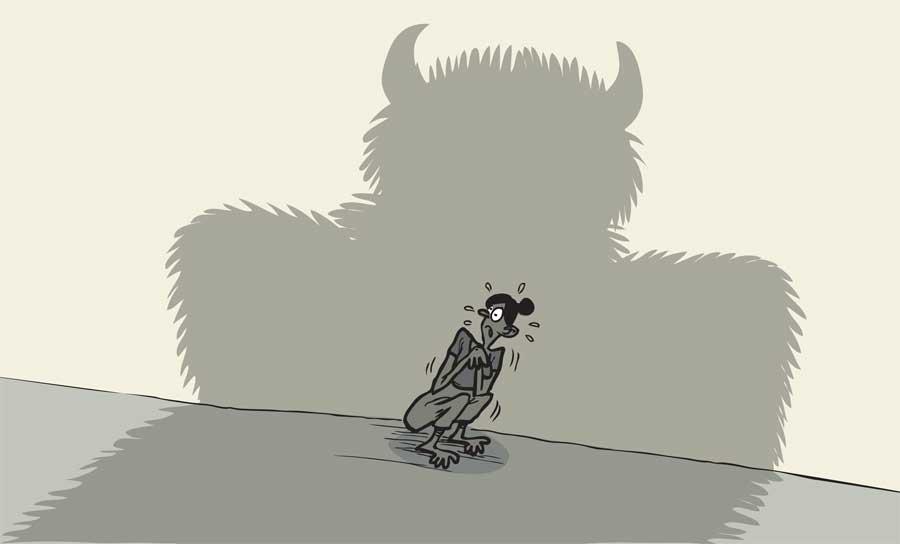Reply To:
Name - Reply Comment

President Ranil Wickremesinghe’s government has taken several practical steps to rescue Sri Lanka from its worst ever socio-economic and political crisis since independence in 1948. Backed by members of the Sri Lanka Podujana Peramuna (SLPP), the President also got approval in Parliament for the 21st Amendment to the Constitution, which is expected to stabilize democracy in the country. But the ordinary people cannot eat constitutional amendments and we see a continuing crisis that millions of people find it difficult to find food, clothing, shelter, health care and education facilities. In this calamity, other major issues are marginalized, and once such issue is violence against women.
Next month, the United Nations marks the International Day for the Elimination of Violence against Women with the theme being “Orange the world: End violence against women now”. In a statement, the world body makes the shocking disclosure that nearly 1 in 3 women have been abused in their lifetime. In times of crises, the numbers rise, as seen during the COVID-19 pandemic and recent humanitarian crises, conflicts and climate disasters.
A new report from UN Women, based on data from 13 countries since the pandemic, shows that 2 in 3 women reported that they or a woman they know experienced some form of violence and are more likely to face food insecurity. Only 1 in 10 women said that victims would go to the police for help. While pervasive, gender-based violence is not inevitable, it can, and must be prevented. Stopping this violence starts with believing survivors, adopting comprehensive and inclusive approaches that tackle the root causes, transform harmful social norms, and empower women and girls. With survivor-centered essential services across policing, justice, health, and social sectors, and sufficient financing for the women’s rights agenda, we can end gender-based violence.
This year’s theme “Orange the World: End Violence against Women Now!” has been chosen because orange is the color to represent a brighter future free of violence against women and girls.
Explaining why we must eliminate violence against women, the UN says violence against women and girls is one of the most widespread, persistent and devastating human rights violations in our world today and remains largely unreported due to the impunity, silence, stigma and shame surrounding it. In general terms, it manifests itself in physical, sexual and psychological forms, encompassing intimate partner violence -- battering, psychological abuse, marital rape, femicide; sexual violence and harassment -- rape, forced sexual acts, unwanted sexual advances, child sexual abuse, forced marriage, street harassment, stalking, cyber-harassment; human trafficking -- slavery, sexual exploitation; female genital mutilation and child marriage.
To further clarify, the Declaration on the Elimination of Violence Against Women issued by the UN General Assembly in 1993, defines violence against women as “any act of gender-based violence that results in, or is likely to result in, physical, sexual or psychological harm or suffering to women, including threats of such acts, coercion or arbitrary deprivation of liberty, whether occurring in public or in private life.”
The adverse psychological, sexual and reproductive health consequences of violence against women and girls affect women at all stages of their life. For example, early-set educational disadvantages not only represent the primary obstacle to universal schooling and the right to education for girls; down the line they are also to blame for restricting access to higher education and even translate into limited opportunities for women in the labour market.
While gender-based violence can happen to anyone, anywhere, some women and girls are particularly vulnerable - for instance, young girls and older women, women who identify as lesbian, bisexual, transgender or intersex, migrants and refugees, indigenous women and ethnic minorities, or women and girls living with HIV and disabilities, and those living through humanitarian crises.
Violence against women continues to be an obstacle to achieving equality, development, peace as well as to the fulfillment of women and girls’ human rights. All in all, the promise of the Sustainable Development Goals (SDGs) - to leave no one behind - cannot be fulfilled without putting an end to violence against women and girls.
Former UN Secretary General Kofi Annan says violence against women is perhaps the most shameful human rights violation, and it is perhaps the most pervasive. It knows no boundaries of geography, culture or wealth. As long as it continues, we cannot claim to be making real progress towards equality, development and peace.